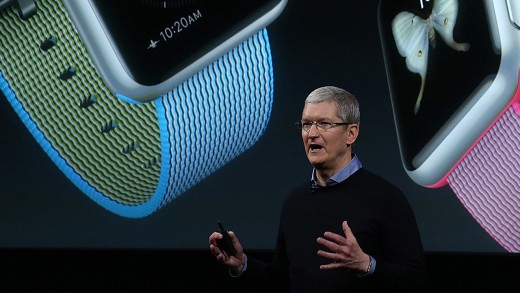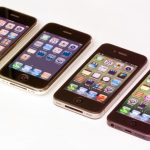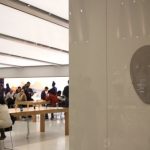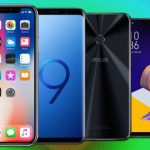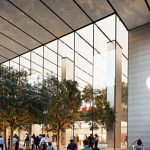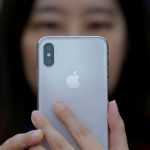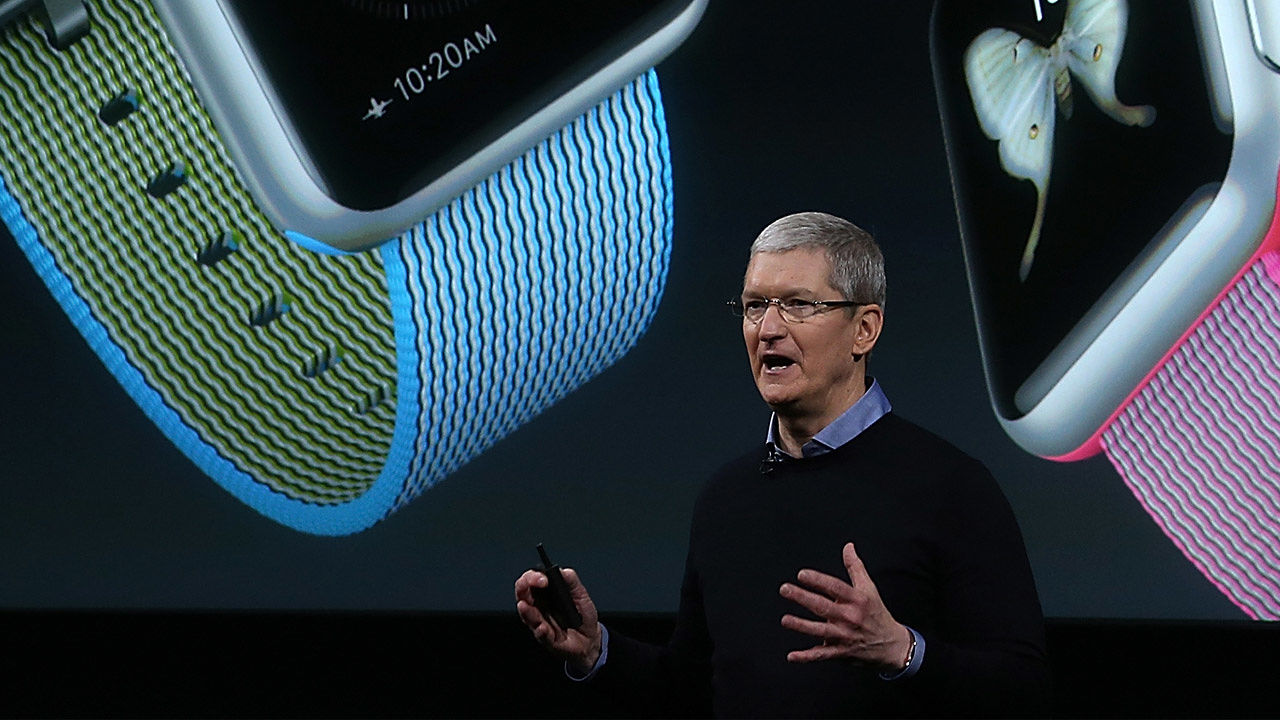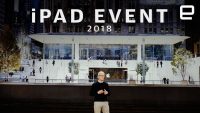Think Different, Apple: Scrap The “Special Events”
Dreary, claustrophobic, and middling aren’t words that anyone ever used to describe Apple’s product announcements when Steve Jobs was at the helm. But they serve just fine for (March 22, 2016)’s affair, in which CEO Tim Cook and a series of drab Apple executives announced a 4″ iPhone, a powerful iPad Pro, and a number of smaller improvements, ranging from pretty watchbands to significant upgrades of its mobile operating system.
Tim Cook has many gifts; drumming up excitement onstage is not one of them. As he and one VP after another droned on, it was impossible not to recall Apple’s former CEO. There are many clichés about Jobs; one that happens to be true is that he was a master presenter. He could create onstage magic—and when he had something that he knew was special he could be sublime. In 2010, when Apple launched the iPad, Jobs walked out onto a stage set with just a Le Corbusier armchair and a table. After a dozen minutes, he sat down to demonstrate the iPad’s wondrous ease of use, looking for all intents and purposes like a retiree relaxing in his living room. The armchair was an allowance to his poor health, but he transformed it into the perfect backdrop for showing off the most intimate thing he’d ever had a hand in creating.
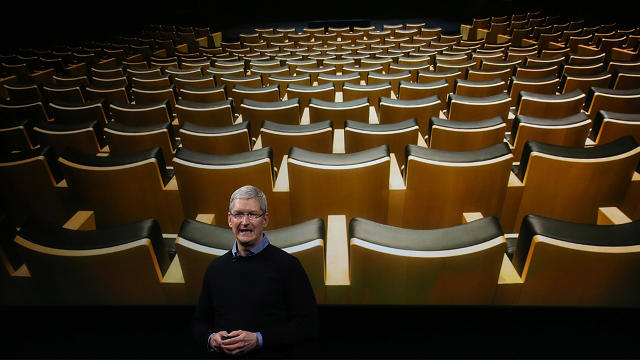
Whether Apple will ever introduce something as transformative as the iPad is an open question, one that may or may not be the key to the company’s long-term success. For now, the company is thriving by churning out incrementally better iterations of the best consumer tech products in the world. Even when you allow for disappointments like the Watch, Apple doesn’t have a product problem. It has a marketing problem. To fix this, the company should follow the lead of its best marketer, the one who has been dead for almost five years.
One of Jobs’s less appreciated skills was his ruthless willingness to abandon past successes. He did this repeatedly. When he returned to Apple in 1997, he killed many brilliant software initiatives, because they diluted the company’s focus. In 2000, he shoved his pet application, iMovie, to the side when his executive team made it clear to him that Apple needed to get into music fast. He dumped the iPod Mini when it was clear to him that the Nano was simply better. He even abandoned his beloved “closed system” for the iPhone when he was persuaded to open the App Store to outside developers. He didn’t honor the past. Apple should apply that discipline to its product announcements, ditch this mediocre theatre, and replace it with something modern, unexpected, and exciting. It needs to think different, to invoke a different Apple cliché.
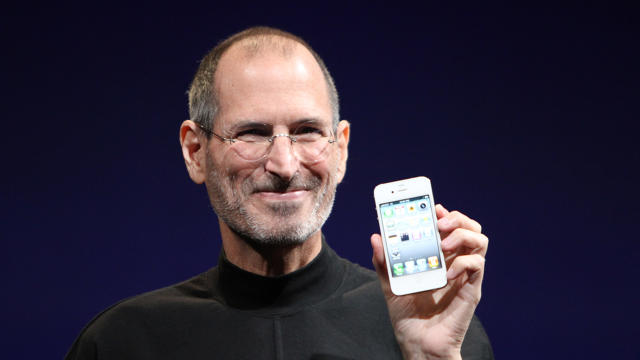
What might a new approach look like? That’s a problem for Apple to figure out, but here’s one scenario to consider: What if, in a few months, Apple simply sent out a tweet with a link to a seven-minute video announcing the next iPhone? And then, a couple of months later, emailed every Apple Music subscriber with news of a notable upgrade? And then hid its next announcement in a single YouTube video, posted on some unexceptional midnight? And then delivered postcards heralding the next iPad to each of its Chinese customers? And then let Cook have an “One more thing” moment on Zack Galifianakis’ Between Two Ferns? And what if Apple never formally announced that it had a new way of announcing its products?
The idea may sound crazy, but “crazy” is one of those words that used to resonate at Apple. We live in a fractured, segmented media world. There’s a delight that comes with the discovery of a viral video, or DJ Khaled’s latest Snapchat homily, or a great shared story that is utterly absent from Apple’s formal stage presentations. The idiosyncrasy of such a product announcement strategy would embrace these younger, more modern, and more ephemeral media while co-opting traditional media: Outlets from the New York Times to Fox News would have no choice but to cover the announcements, given the massive number of Apple customers.
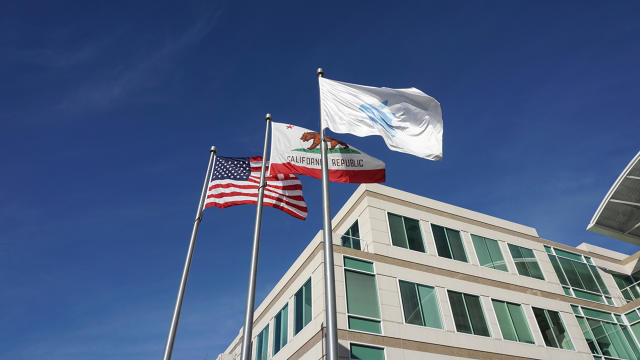
Of course, Apple is so big, and so profitable, that it doesn’t need to change anything at all—for now. Its product announcements generate more press than any others, so perhaps that’s just fine too—for now. But that won’t be true forever, and already people are starting to tire of this same old routine. (The Los Angeles Times, for example, called the event “pretty predictable.”) Cool matters to tech geeks, and if Apple loses its cool it will slowly, and then perhaps suddenly, lose its customers. Steve Jobs was never predictable, and he was never complacent. Apple should follow his lead by killing this art form he perfected.
Apple Event Recap: From The iPhone SE To The New CareKit
Fast Company , Read Full Story
(29)

